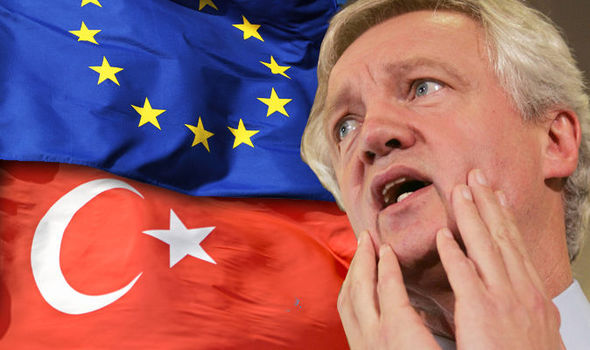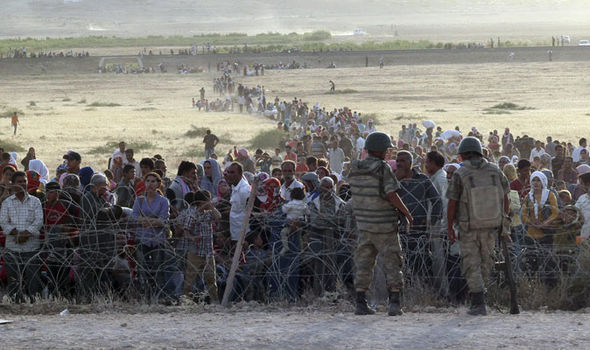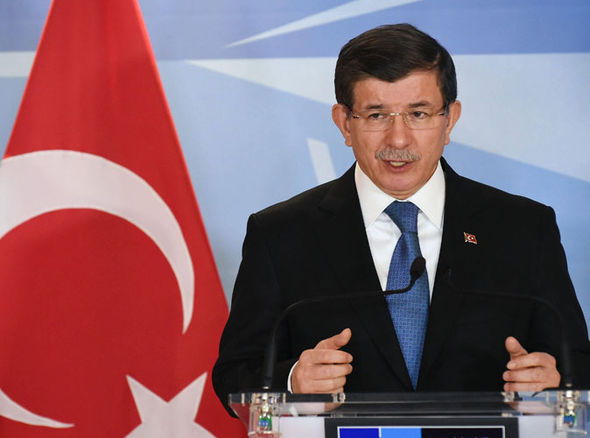Horror as Turkish is made an ‘official EU language’ before ANY voters support membership

TURKISH is to become an official language of the European Union, as the Islamic nation draws closer to being admitted as a fully-fledged EU member.
Not a single voter from the EU's 28 member states — which have a total population of 508 million — has yet to vote in favour of Turkish membership.
But MEPs voted 375 – 133 to back the initiative by President of Cyprus Nicos Anastasiades, who asked the Dutch EU Presidency to add Turkish to the bloc’s 24 official languages in order to boost attempts to reach a reunification agreement on the Mediterranean island.
The move, expected to add £25m to the EU's annual budget, has infuriated critics who last night said it was further proof that Turkey’s accession to the EU was “all but guaranteed”.
They warned that Turkey’s large population, which grew from 50 million in 1985 to 77 million in 2015 and is projected to overtake Germany’s by 2018, would give it more MEPs than the UK, making it the second biggest voting power under the EU’s Qualified Majority Voting system.
This should further water down the UK’s influence.
Turkey’s per capita GDP is also less than one quarter of the UK’s, and on a par with Romania and Bulgaria, fuelling concerns of mass economic migration to Britain.
Last month the European Union signed a groundbreaking deal with Turkey aimed at combating the tide of refugees making their way into Europe.
As part of the agreement any “new irregular migrants” who arrived in Greece after that date would be sent back to Turkey. In return EU member states would accept one Syrian refugee from Turkey for every one sent back.
Turkey was rewarded with a £5bn bonanza from Brussels and assurances that Turkish passport holders would enjoy visa-free access to Europe later this year.
“This is proof that Turkey becoming an EU member state is all but a done deal,” said Ukip migration spokesman Steven Woolfe.
“If we remain in the EU, we will before long be in political union with Turkey – a country which has vast deficiencies in the rule of law and freedom of the press.”
Ukip leader Nigel Farage has also said a vote for remaining in the EU is "a vote for Turkey, for massively increased migration to Britain."
Former shadow Home Secretary and Grassroots Out spokesmen David Davis added: “In supporting Turkish membership – a country with a porous border with Iraq, Iran and Syria — the EU is hardly helping British national security.
"The only way we protect ourselves from the thousands of ISIS sponsored terrorists that Europol tell us are roaming free within the borderless EU is by voting to leave the EU on June 23.”
All of the other 24 'official and working' languages are tied to states which are full members of the European Union.
But although Welsh and Catalan are not even recognised as official languages, Turkish has now been added.
The European Commission says all EU citizens have the right to access all EU documents in the official language(s) of the Commission, and should be able to write to the Commission and receive a response in their own language.
In high-level meetings between Member States, the participants are able to use their own language when they take the floor.
The first official languages of what was then the European Community were Dutch, French, German, and Italian.
Since then, as more countries have become part of the EU, the number of official and working languages has increased. However, there are fewer official languages than Member States, as some share common languages.
In 2015 the European Commission issued a report on Turkey which expressed concern about its human rights record, limits to freedom of expression and its state of public administration.
Политика конфиденциальности | Правила пользования сайтом









